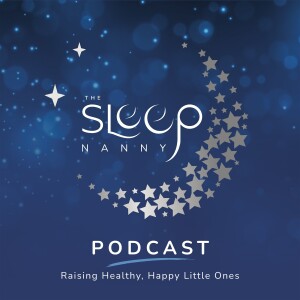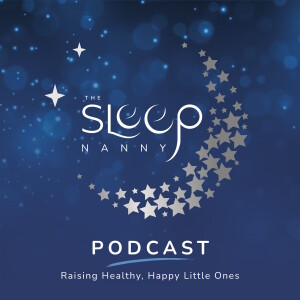
https://youtu.be/5Pn_i4INQXs
The four-month sleep regression. Is it real?
Well, this is tricky because yes, there are some things that go on in four and five months old, and it can often be seen or feel like there's a regression. But I want to give you some thought points today. Things to think about that will help you maneuver your way through this phase with more ease, because having a good understanding of it will definitely help you with this.
The first one is, I really like to think of these things as a progression, not a regression. So maybe you can re-look at this as the four-month progression. What's really happening is your child is progressing. Your baby is developing physically and mentally at a rapid, rapid rate. And in that fourth and fifth month, there's a huge amount of developmental growth. So really it's all about progress. They're not going backwards.
And it might feel like sleep goes backwards, which is why people call this a sleep regression. But, actually there's nothing going wrong with their sleep. They just have different needs at this kind of age. Why? Because sleep's taking shape, things are changing.
The second thing I want you to think about on this exact topic right now is the old tricks. The old tricks stop working.
So for instance, if ... And this might not happen at four months, this might not happen until later, but for lots of babies, it does happen at this stage. If you have been rocking your baby to sleep, but suddenly it's not working so well, or you're trying but then they're waking up, or feeding to sleep, or pacing them to sleep, whatever it may be, a trick, a thing, a little technique that you were using that worked to get your baby to sleep, or to get them back to sleep in the night when they wake, perhaps is not as effective now.
And you think, "Oh, it's a sleep regression. But actually, it isn't. It's just that your baby is wise to it. And it was kind of just masking and doing the job for them until they were ready to learn. And now your baby's going, "Yeah, this isn't going to cut it anymore." And it's a sign that they're ready to learn a bit more.
They're ready, to develop some better sleep skills and start doing a little bit more of that sleep stuff. And not have you do it all for them.
So, the old tricks might stop working. That was my second point there.
The third thing is naps become a bit more organized around this stage. They start to fall into better rhythms. So up until now, naps have probably been quite haphazard, snapped and grab, short and often, and not really very predictable. And that's very normal for the first few months, but you're coming into a stage now where they may be taking better shape.
They're a bit more structured. Your baby is managing to be awake for a chunk of time and then needs to sleep, and then awake for a chunk of time and needs to sleep. And it's much more rhythmic and patterned and structured. You could be there already, or maybe you are not there, but the fact that your baby's sleep might be looking like it's regressing at nighttime is possibly because they are looking for that structure.
Your baby's ready for a bit more rhythmicity and structure to those naps and wants you to help accommodate that so that they are getting enough. And then they're able to sleep better at nighttime. So, it could be to do with that.
And then the fourth point that I want you to think about is the bedtime routine. It really is key. Bedtime routine is key at this stage because again, if you haven't had one ... If you have one in place, amazing. And keep that going.
But if you haven't got one in place, it's absolutely important. So it’s imperative that you do this now, having those same steps in the same order every evening,
view more
More Episodes
Sleep Coaching Is For Parents, Not Babies!
 2021-10-05
2021-10-05
 16
16
 2021-10-05
2021-10-05
 16
16
3 Simple Steps to Fix Little One Waking Up at 5am
 2021-09-07
2021-09-07
 20
20
 2021-09-07
2021-09-07
 20
20
Baby Fights Naps – Naps! What To Do When Baby Wont Nap
 2021-07-27
2021-07-27
 28
28
 2021-07-27
2021-07-27
 28
28
Traveling With a Baby or Toddler?
 2021-07-13
2021-07-13
 14
14
 2021-07-13
2021-07-13
 14
14
Pick Up Put Down Sleep Training – Micro Step Method 2020
 2020-12-22
2020-12-22
 46
46
 2020-12-22
2020-12-22
 46
46
Teething & Baby Sleep
 2020-12-08
2020-12-08
 22
22
 2020-12-08
2020-12-08
 22
22
Early Morning Waking Baby
 2020-12-01
2020-12-01
 17
17
 2020-12-01
2020-12-01
 17
17
2 to 1 Nap Transition
 2020-11-24
2020-11-24
 13
13
 2020-11-24
2020-11-24
 13
13
Sleep Consultant Training – How Helen Did It!
 2020-11-17
2020-11-17
 13
13
 2020-11-17
2020-11-17
 13
13
Sleep Training Not Working?
 2020-11-10
2020-11-10
 11
11
 2020-11-10
2020-11-10
 11
11
What Is A Dream Feed and How Do We Do It?
 2020-11-03
2020-11-03
 17
17
 2020-11-03
2020-11-03
 17
17
012345678910111213141516171819
Create your
podcast in
minutes
- Full-featured podcast site
- Unlimited storage and bandwidth
- Comprehensive podcast stats
- Distribute to Apple Podcasts, Spotify, and more
- Make money with your podcast
It is Free
- Privacy Policy
- Cookie Policy
- Terms of Use
- Consent Preferences
- Copyright © 2015-2024 Podbean.com






